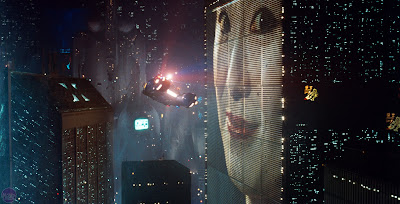It’s when I look up from my
regular filter refill that I see it. It’s on the kiddie shelf, the
family-oriented corner of the café with all the picture books to attract young
mums and dads doing their parenting over a skinny latte. Amongst the crayons,
the Thomas the Tank Engine hardbacks,
there it is: a splodge of colour and outline, a precarious schematic suggesting
a shape. It is, in other words, a child’s drawing.
Not so very unusual in a
crèche area, you might say. In fact there are several such fumbling sketches. But the issue isn’t the draughtsmanship. The issue here is what it
depicts. This child’s drawing, as I learn
on closer inspection, is a “Mango and Passionfruit Juice Blend”. I know that
because it says so, at the bottom. In the same wonky hand. They’ve even
included a smiley on the end.
Cute eh? Other such infant
talent on display includes the “Chocolate Chip Frapucino (sic)”; the “Iced Cafe
Mocha”; the “Classic Hot Chocolate” and, perhaps most perturbing, a piece of
Outsider Art entitled “Did You Know? Starbucks Coffee Is The Best!” They’ve
even included a charmingly wonky corporate mermaid.
Am I to understand that
Starbucks has been employing children to
do part of its marketing?
I use the word “employ” only
loosely of course; perhaps it was part of some community thing, a kids’
activities day or suchlike. This particular branch of Starbucks also hosts
nights for a local non-denominational church (go figure). Or perhaps – and this seems a bit
of a stretch – the staff drew them, tongue between teeth, using their left hand, thinking themselves back into a five-year old.
Somehow, this is even more
sinister.
At any rate it suggests a
breathtaking level of intimacy between the global corporation and the growing child
– many of whom will presumably spend their formative years gazing up at
inspirational Chocolate Chip Frappucino drawings in the way I used to gaze up at
a toy WWI biplane. The general term for all this is “Relationship Marketing” –
that is, any attempt to foster a link between company and consumer – but given
that these customers are still learning to make vowel sounds, I’d say it was
less “marketing” and more a kind of friendly corporate “brainwashing” with
overtones of the Soviet Komsomol program. How are kids supposed to develop
distinct personalities when they’re taught to associate creativity with drawing
a cappuccino?
It’s not just Starbucks of
course. Just across the road the Sainsbury’s apes the historic shop window with
its “community” notice board, bracketed by a big smiling picture of a copper
just to remind the local “community” Not To Try Anything Clever; global
retailers don’t just want to replace the high street, they want to be the high street.
I know this because I
actually lived in a Starbucks for a while – one inside the Borders store in
Islington during the late 2000s. Technically I was domiciled in a flat up the
road but since I spent most of my waking life in the cafe (being part of the
book store it served as a locum library, breakout room and occasional sleeping
area) it was effectively my address – until Borders went out of business.
Brands becoming complete solutions
for living is less sci-fi than it sounds. Just look at iLives, the Cult of
Apple; look at apartments opening up inside malls, or branded “butchers” and “bakers”
inside supermarkets; look at people who struggle to interact outside Facebook,
or Google Glass. An MRI study showed that Apple imagery now excites similar neurological
responses as religious iconography used to. They say our earliest attachments last
from cradle to grave – so Starbucks is working hard to get them in the cradle.
What's the harm, eh? Ahhh:
just look at how they love colouring in those cappuccinos.






